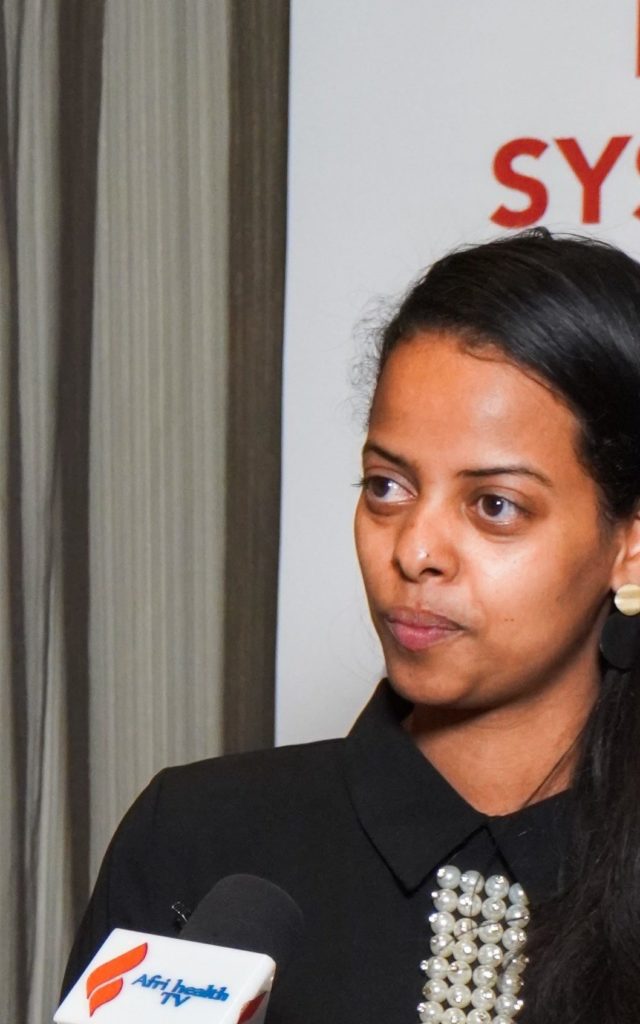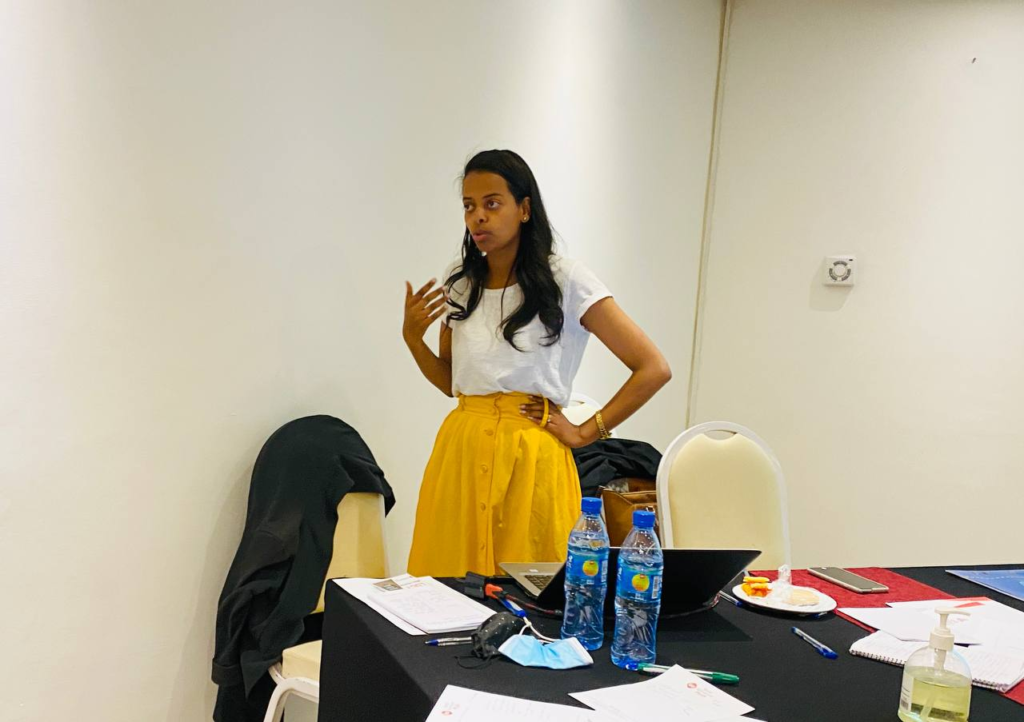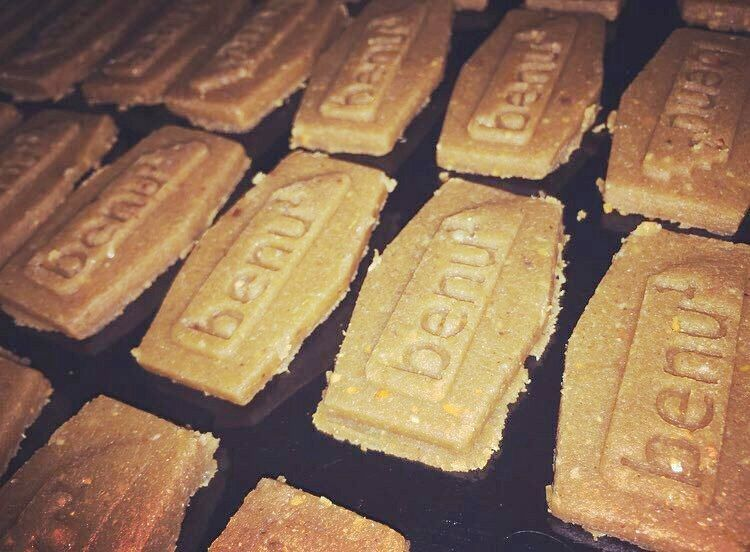Super Nutritionist Betty – Working Towards Better Nutrition in Ethiopia
Originally published in Portuguese by Um so Planeta: Read here
Betelhem (Betty) Lakew, from Ethiopia, is a professional nutritionist, food scientist, entrepreneur, and a youth advocate for the Act4Food Act4Change campaign. We caught up with Betty to learn about her journey and experience in the nutrition space and her leadership in the Act4Food Act4Change campaign.

Naina: Hello Betty! You have a stellar profile. Please tell us a bit about yourself.
Betty: I am based in Ethiopia. I graduated in food science and nutrition for my bachelor’s and master’s degrees from Addis Ababa Science and Technology University. Currently I am working as a nutrition consultant and general manager for my own nutrition counselling company, Lehem. It focuses on maternal and child nutrition and weight management issues. I also founded another company called BeNu Foods, which is a social enterprise, and it produces nutritious products for children, malnourished people and for those who want to eat healthy. We aim to provide nutritious products that are produced locally and at an affordable price. I also work as a research assistant at Addis Ababa Science and Technology University, my alma mater. My nickname is Betty Nutritionist because I love nutrition and wherever I go, I want to say something about nutrition and healthy eating.
N: How did you get interested in Nutrition?
B: Honestly speaking, and this might come as a shock, I was not planning to study nutrition or food science. In Ethiopia, a college admission is granted based on your list of choices and grades. My plan was to be an architect because I am good at drawing. Unfortunately, I was not able to get admitted to architecture school and I got very shocked and upset. But I got admitted to a department where I studied nutrition and food sciences and I really enjoyed the subject. I am a foody anyway and like to eat and cook. I became the highest scorer in the class. Second year of my studies at university, I became a strong advocate for nutrition and have been ever since.
N: Do you still do art?
B: I am good at drawing and when I have free time, I like to draw. I feel relaxed when I see interior design, so I collect photos of interior designs.
N: When you talk to people about nutrition as an advocate, what is that experience like for you? Do you find people are aware of basic knowledge on nutrition or healthy eating, or do you face resistance?
B: I am also an ambassador for YALTA (Youth in Agroecology and Business Learning Track Africa), which made me understand about the nutritional status of people in Ethiopia. We go look for farmers and see how they implement nutrition, food sciences and agroecology. I think it is all about awareness and how we implement agriculture. In my country, people feel that nutrition is a luxury thing, and they are unable to afford healthy food. I counsel for maternal and child nutrition so there are a lot of mothers who come to my office and ask for help on weight management. It stresses people when they get bigger. It is related to their look and psychological thing. The awareness is getting good, but we still have to do a lot. I know it is not easy. I do not see happy faces when I say nutrition.
N: How is the experience different for you in working in urban versus rural areas?
B: For nutrition counselling I am based in Addis, the capital, but there are people who contact me from rural or semi-urban areas. People call me when they see me on TV or talking about nutrition and want to avail my services. In rural areas, I had this experience through YALTA that when I see the farmers, they have the capacity and resources, but they do not know how to use it, or it is not their thing to eat healthy. If they have cows, you will think that they would drink the milk. But they do not. They will sell the milk and buy something else. If we can make them understand that how they can change their and their children’s life by having a cup of milk or diversifying their diets through their home gardens, it can go a long way. In BeNu Foods, one of our products is high protein nutritious biscuits that we distribute in school feeding programmes. We couldn’t believe that people in rural areas are having nutrition problem, which can be changed in such an easy way. They eat the biscuit in the morning, and they can spend half the day feeling full. They can play, study well and attend class. The class attendance has doubled in schools when we gave them biscuits. I am not bragging about biscuits but making the point that when you make a small contribution to the community, sometimes the impact is unexpected and huge. The urban areas, most people know what to eat and what not to eat but they do not prioritise it. We need to educate them on how to balance their diets. In rural areas, awareness is relatively low.

N: What’s your experience been as part of the youth campaign Act4Food Act4Change? What activities have you done? What are your expectations going forward?
B: I joined the campaign through GAIN. GAIN contacted me because I am known in the nutrition circles. I was super happy that I could formally do my nutrition advocacy work. We were doing a lot of work especially focusing on informational gaps and want to engage young people. We did a launching event of the campaign at the Addis Ababa Science and Technology University. We had a nutrition association, which I created when I was a student at that university, and I told them that we have a campaign and want to work with you. The students and the university were happy to join. We wanted to motivate them. We did a video regarding nutrition and related things. We also held a food vendors competition. We worked with applicants who were small and medium food vendors and focused on how they can achieve healthy and safe food. We had two media channels cover our competition event and it was aired on TV. We got three winners. GAIN supported us in the work. Hopefully these SMEs can impact their community and customers.
N: What were the winning ideas?
B: They were locally-based small and medium food vendors. We had five finalists who pitched their plans and three of them won. Of the three winners, there was a mushroom producer, a dairy producer, and a restaurant owner. We checked their menus and products looking for diversity in their food offerings, as well as food safety. We also judged based on whether they were willing to bring changes in their food menus to make them nutritious and safe. There was an evaluation system in place to judge that. We had four judges, two were from GAIN and the other two were representatives from the university and a restaurant owner. We also did a site visit of the cafes and restaurant to check if they were implementing food safety rules. I also gave food safety training to the short-listed ten companies. We gave them a food safety checklist to implement safety rules. Hopefully they will be implementing it.
N: How do you manage your time with all these different activities? What keeps you motivated?
B: I have a team and delegate responsibilities to them. I do not accept things for the sake of money. I want to do things from internal motivation. When it comes to nutrition, I feel like I can have an impact in my country. The internal motivation is one of the few things that helps me to manage my time. I work for 16 hours a day. Usually people work 8 hours, I do double of that most of the days. Two or three years back I wanted to grab all the opportunities that came my way. But currently, I am focusing on specialising in things. I am trying to reduce my activities and focus on one activity and delegate work. For example, I usually counsel people on Saturdays. On Wednesday I am at the university for research work. On Monday I will do YALTA work and on other days I will work on other activities.

N: What do you want to in the next few years? What are you aiming for?
B: I do not want to do things that will benefit myself only. It is not worth doing things to feed yourself only. I want to go beyond my family and friends. I want to work for my country and if possible, once I achieve that, work internationally on nutrition and food science. I want to specialise on activities, such as Lehem (maternal and child health nutrition). I want to make Lehem big and make it a centre and not just a counselling office. If we can nourish and focus on first 1000 days, we can change a generation. For the rural population, I want to focus on BeNu foods and if we are able to, provide nutritious food products at an affordable price to the maximum number of people – that would be a big achievement. I am also interested in policy making.
N: What is one message you would want to give to young people who want to make a change?
B: Just be focused and believe that you can do it. Have that clean heart (we call that nits’uhi libi). If you have clean heart to help people, God will help you. If you are focusing on getting money and changing your own life, you will not have an internal motivation. So, it is important to have a clean heart and feel that you can achieve.